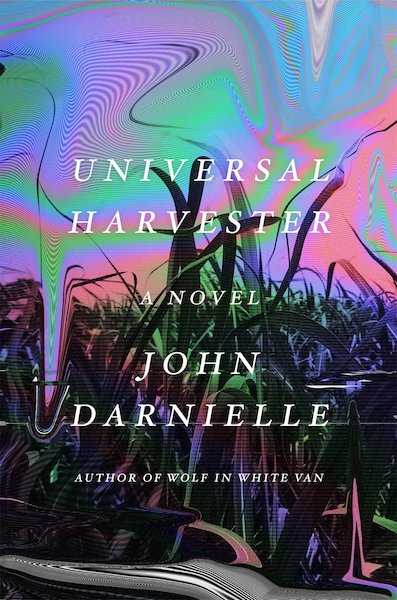On Feb. 7, John Darnielle, member of the band The Mountain Goats and author of New York Times Bestseller “Wolf in White Van,” released his newest novel, “Universal Harvester.” The story takes place in a small Iowa town in the 1990s, following the lives of unassuming men and women who have their lives planned out from start to finish until crucial pieces of the plan are lost or new ones are introduced. While the novel is centered around a bizarre mystery, the narrative that subtly pulses below the surface is one of confronting grief and seeking peace.
From “Children of the Corn,” to Mel Gibson’s “Signs” to Donald Ray Pollock’s “The Devil All the Time,” it is clear that authors and filmmakers of chilling tales cannot resist the pale seduction of rural small-towns. They seem to relish in the image of undulating fields and the immersion of their characters within the dense, wide spaces where cries for help are answered only by the whistling of the wind.
Darnielle, a native Californian, seems also to have succumbed to this temptation. In “Universal Harvester” the open land, the winding dirt roads and the simple farmers merge into a singularly claustrophobic scene.
The central character is a 22-year-old named Jeremy Heldt who works at a local Video Hut. In the beginning, Jeremy’s days are indistinguishable. They roll by in sluggish patterns that would leave most people restless and dissatisfied. When two customers return their movies claiming that they had been taped over with some kind of home-video, the slow, mechanical patterns of Jeremy’s everyday begin to sputter and cut out. He goes home and watches the film, a curiosity that feels harmless but turns out to be the first of many decisions that eventually lead him to a small farmhouse and a dark shed in the middle of nowhere.
By layering different narratives from various times, Darnielle creates an erratic plot that has the effect of disorienting his audience; however, bewilderment and disturbance are two themes that unify the many conflicts that arise. In retrospect, the frustration induced by the lack of explanation connecting the tiered narratives forces the reader to pull reason from chaos, similar to the challenges taken on by the protagonists.
Coping with loss serves as a forceful undercurrent, subtly creating links and knots between the characters and events with a string of absences. A major achievement of the text is Darnielle’s ability to maintain the speed of a gripping mystery despite the melancholic and dismal habitation that stains the story grey with lethargy and sorrow.
Although at times the story is excessively ambiguous, and has a few too many clichés regarding the perplexity and foreboding of rural Iowa, the inner-conflicts and mental restraints are portrayed in a compelling style that separates “Universal Harvester” from the typical mystery placed in the center of a cornfield. Darnielle creates characters whose desperation and unbearable desolation lead them into circumstances so shocking, the darkened scenes and unnerving images will linger in your thoughts days after you turn the last page.











